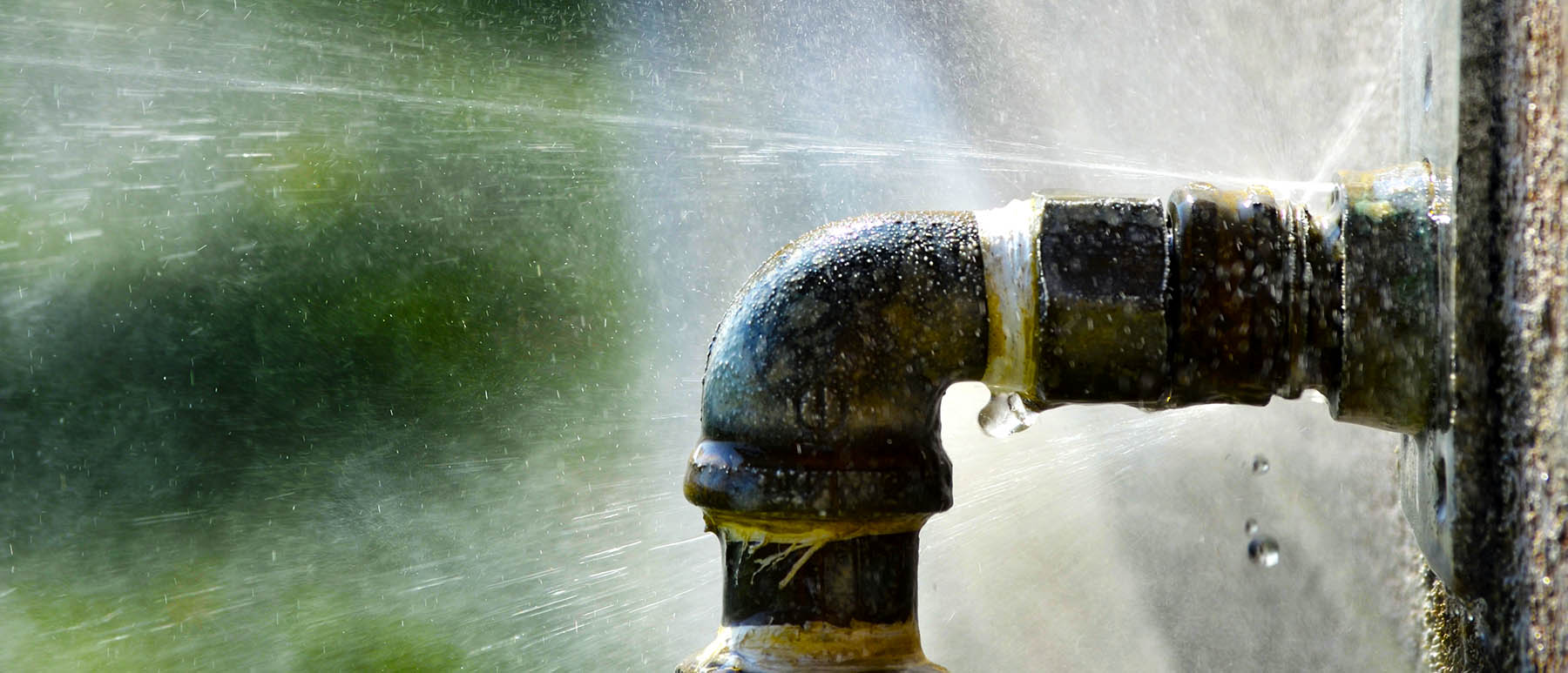Even when optimized, landscape irrigation is a significant source of water use within an urban community. However, water usage and costs can escalate when systems and equipment are broken or not controlled properly.
Here are a few common waste water culprits we find time and again during site-walks. Addressing them with a commissioning team can help realign your facility to achieve the kind of water efficiency that nets real savings:
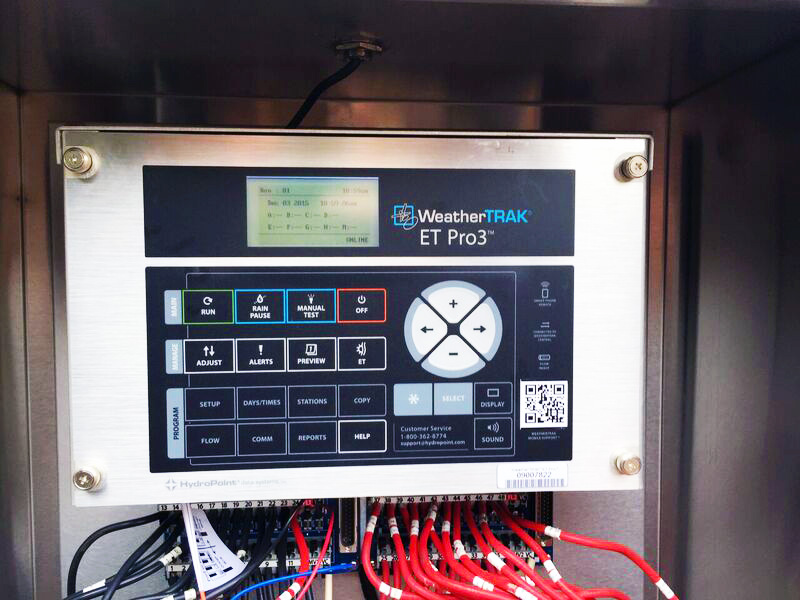
Controls
Problem – Ideally, irrigation controllers are programmed to allow just the right amount of water at the just the right interval for your landscape. But wasted water can easily occur when these controllers are outdated, not installed properly, or not optimized for your plant type, soil type, property slope, temperature, humidity, or exposure. Modern controllers aren’t perfect either. While they’re capable of receiving local weather data and decrease water output when it is cool or humid outside, often times they’re found to not be set up or programmed properly.
Solution – As they say, when something can go wrong, most likely it will go wrong. Controller setup should be verified and all functions tested to help achieve the usage savings those modern systems can provide. There can be hundreds of programmable values per site, which are necessary to provide the correct amount of water. A commissioning agent can help align those systems and set your facility up to start hitting some great water conservation benchmarks.
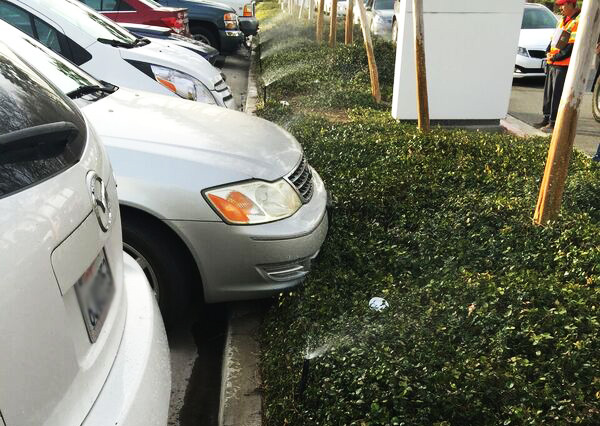
Poor Water Metering
Problem – It’s common to discover several significant system leaks when auditing a facility. System breaks are often the result of tree roots or accidental damage by workers. Main breaks also happen, and can be sudden and devastating. For instance, if a main line breaks and is losing 50 gallons per minute, a staggering total of 72,000 gallons of water would be lost in a 24-hour period. And on a different scale, if there are four locations with small, ½-gallon-per-minute leaks, it could add up to more than 1,000,000 gallons of water lost annually.
Solution – It is recommended that metering be in place not only to track general consumption, but to alert the system and user of leaks. Modern controllers can connect with meters and master valves to detect when there is a main line break or even when a sprinkler head has ruptured, and alert the user and shut down flow. Always be prepared – commissioning tests verify that parameters are set up correctly and can actually simulate breaks to confirm functionality.
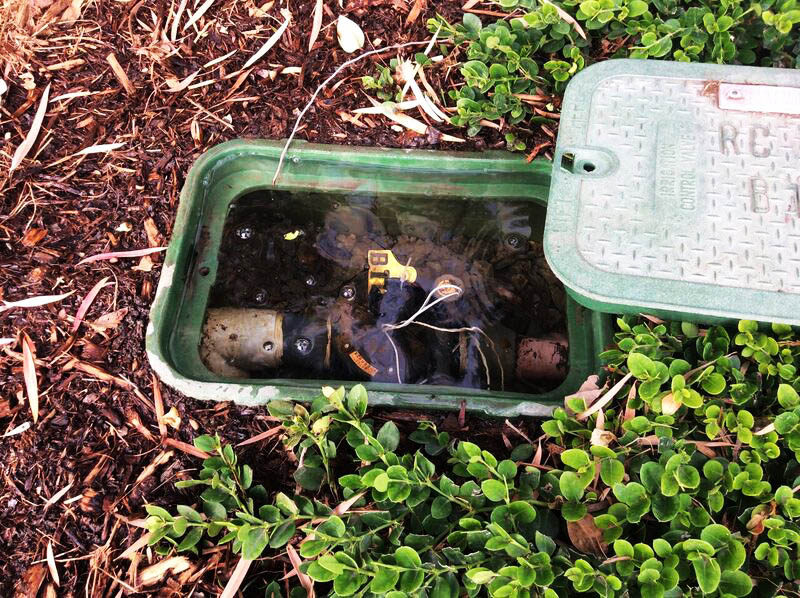
Degraded Systems
Problem – Over time, leaks develop at pipes, fittings, sprinkler caps, and seals. It’s inevitable. Common wear and tear, or simple system aging can cause things to break down, even at the most well maintained facility. And while simple degradation is expected, the resulting losses can be huge, often in the range of several gallons per minute, per zone, causing pooling, runoff, and major safety issues.
Solution – While a good landscape maintenance contractor will help identify some issues, it is necessary to perform routine system audits, repairs, and verification of completed work. Third party verification is key to ensuring all repairs – regardless of size or difficulty – have been completed properly.
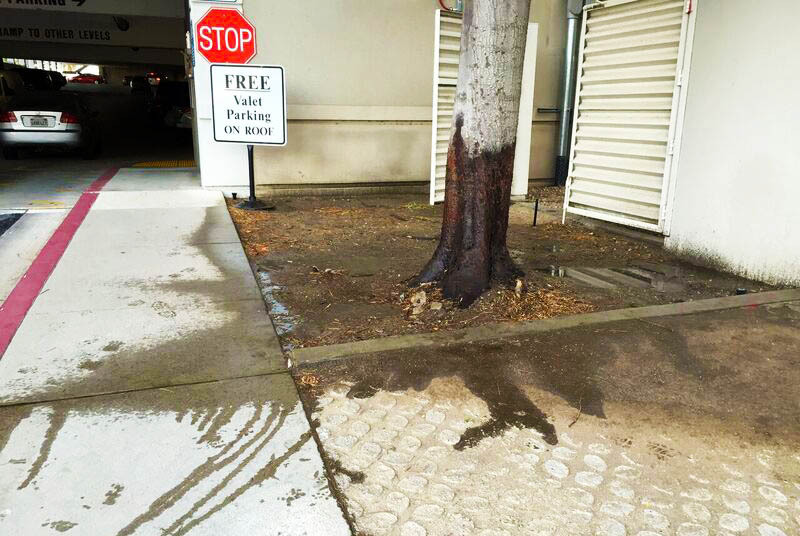
Inefficient Distribution
Problem – Distribution issues generally arise from poor application, replacements using the incorrect heads, changes to landscape, or improper system adjustments. Overspray and runoff are a common side effect of these problems, and compound system inefficiency.
Solution – Most facilities we audit have many heads that can be capped or reduced significantly. Pooling, overspray, and resulting runoff are commonly addressed by replacing heads with drip irrigation, variable arc nozzles, or simply adjusting flow. For example, we often see areas that have sprinklers where there are no longer plants. This leaves the possibility of capping (abandoning) these heads and redirecting flow to more needed areas. The commissioning process assists with identifying these issues and verifying corrections and adjustments.
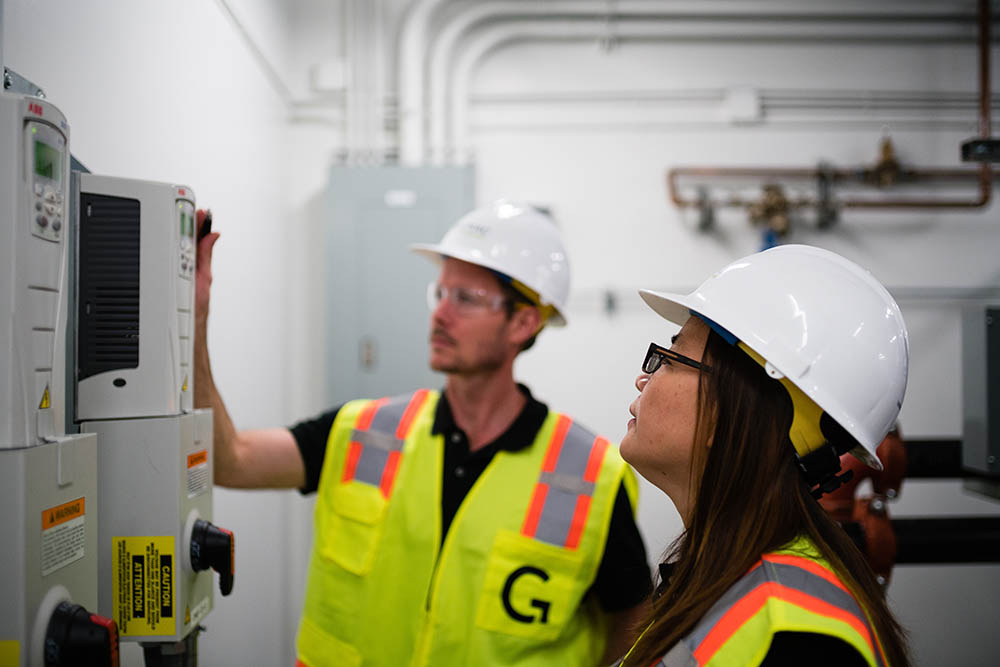
Operations & Maintenance
Problem – At sites with hundreds or even thousands of heads, it is difficult for a maintenance contractor to find all issues during routine visits. When you’re dealing with that sort of large-scale campus, it can be a tall order, even for the best. Often these visits concentrate more on landscaping and far less on surveying irrigation components. However the result is substantial water waste, public appearance concerns, and safety hazards.
Solution – In cooperation with facilities and/or the landscape contractor, a commissioning team can partner on a routine survey and evaluation report. This will assist in identifying outstanding waste issues and cost-effective solutions. An annual survey may be sufficient for sites less than five years old, bi-annually for sites 5-10 years old, and a quarterly survey might be appropriate for those older than 10 years. Where smart controllers are installed, a monthly report can be generated to include alarms of potential problems, and operations and maintenance staff can be trained on how to properly respond to these reports.
The complexity of landscape irrigation systems should not be underestimated. When it comes to maintenance requirements and reoccurring issues, systems left untended will wash potential savings out with the wasted water they’re designed to conserve. Commissioning teams are here to help you recoup the savings you’re expecting from the optimized systems you’ve invested in. An initial system audit and repair can be followed by a program of regular maintenance, surveys, and reporting as part of your sustainable building program.
To learn more about Glumac’s commissioning services, please email Aaron Schneider at [email protected].

